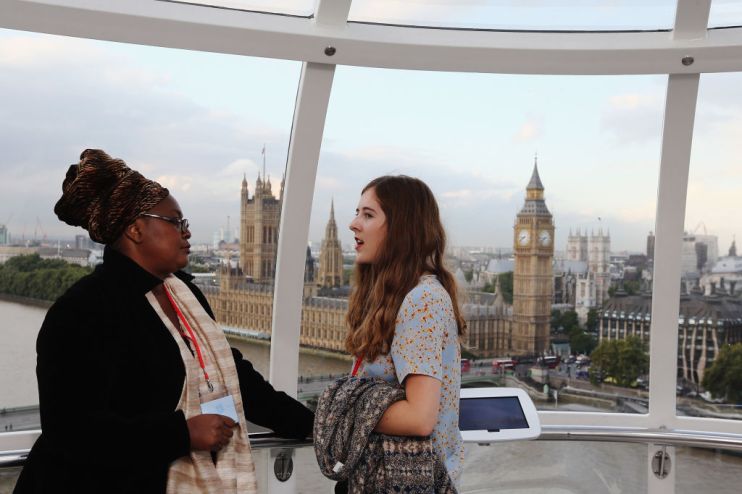Social responsibility belongs in the boardroom, not the marketing suite

The issues that concern young people the most today — from the climate crisis and global pandemic to new conversations on race and privilege — are ones that also belong in the boardroom.
Our world is changing fast, and so too are society’s expectations of corporate Britain — not just when it comes to the environment and protecting our planet, but towards people as well.
Companies that are not tuned in to these changing attitudes will be overtaken by business leaders who understand that making a sustainable profit and serving a wider business purpose are interwoven. They are not mutually exclusive, they are two sides of the same coin.
For too long, corporate social responsibility has, in practice, amounted to little more than lip service and reputation advertising. Earlier this year, the Financial Reporting Council called out businesses that substitute slogans or marketing lines instead of showing clear purpose, while our own public polling showed that 67 per cent of people saw corporate social responsibility as little more than advertising.
This needs to change. Being a purpose-led organisation is about more than marketing; it’s about genuine advocacy stemming from the boardroom on environmental, social and governance (ESG) issues.
ESG is not PR or marketing. It can’t be faked or exist in just one part of a business. It is about the DNA of a company and how, from the very top to bottom, that business takes a wider world’s priorities and makes them its own.
Bound up with that ethos is the fundamental understanding that profit with a purpose needs a plan, so that a company will continue to deliver on its purpose even as management teams come and go.
So what does this look like in practice?
Through my work on the Social Mobility Pledge, I’ve spoken with hundreds of business leaders, including many blue-chip City firms, to understand their strategies and find out what works. I’ve seen some brilliant innovation across the country. I’ve also seen superb work by businesses with schools, work programmes that reach into the most deprived communities, and innovative recruitment and progression strategies to find talent that may be further away and hidden but is transformational when unlocked.
I’ve seen businesses which have worked with local communities and stuck with them year after year, forming deep partnerships that go beyond a day or two of ad hoc volunteering, however helpful that can be.
Leaders who are serious about this don’t see it as marketing or a bolt-on to their core business — for them it is their core business. The leadership and culture shape the entire organisation: its people, processes, systems, and wider working environment. Those at the forefront are happy to share their knowledge and learn from others, because they are genuinely aiming to contribute to the agenda and values of a wider world.
Since 2018, the Social Mobility Pledge has been helping businesses achieve that goal. Already, we are the UK’s largest social mobility campaign. More than 500 businesses and universities have signed the Pledge: committing to partnering with local schools, offering apprenticeships, and adopting fair and inclusive recruitment policies. Our signatories represent over five million employees and two million students.
We understand what true purpose means because we are so clear about our own. It’s why I set up the Purpose Index of FTSE 100 firms with BP’s former chief financial officer, Brian Gilvary, identifying which major UK companies are putting in place action plans to boost opportunity and social mobility in the wake of Covid-19.
The Social Mobility Pledge is helping businesses answer the questions that enable them to make a far larger, more sustainable impact. Together, we are building a coalition of purpose-led businesses and universities, driven by a belief that success and purpose go hand in hand, and can change things for the better.
That’s why they came on this journey with us, and I hope over the coming months more of Britain’s businesses can join us going further and faster — together.
Main image credit: Getty